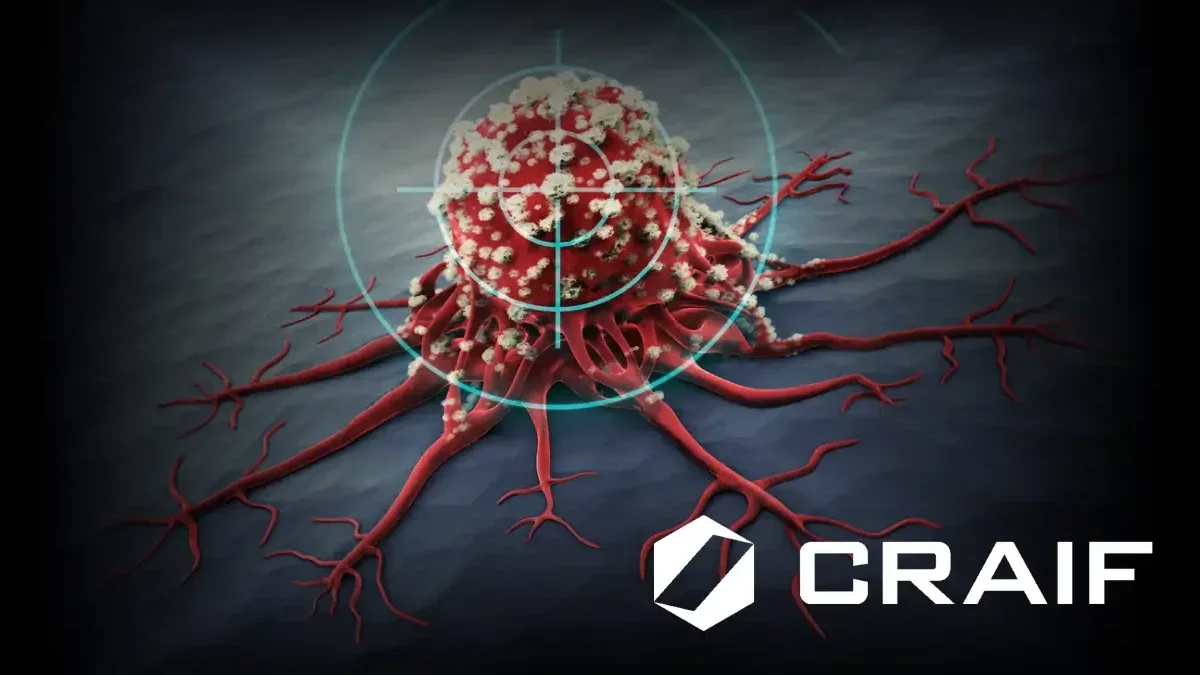Necessary Always Active
Necessary cookies are required to enable the basic features of this site, such as providing secure log-in or adjusting your consent preferences. These cookies do not store any personally identifiable data.
|
||||||
|
||||||
|
||||||
|

Craif, an early cancer detection startup, has raised $22 million in recent funding to expand its operations in the U.S. The company plans to expand its research and development, according to a report by TechCrunch. Since its establishment in 2018, Craif has operated as a commercial venture. It is a spin-off from Nagoya University, Japan, that leverages microRNA (miRNA) and AI for the early detection of cancer.
This latest Series C funding round values Craif at just under $100 million. The company wants to make cancer testing simple, accurate, and easy for everyone by using a non-invasive urine test.
Craif was co-founded by Ryuichi Onose after seeing his grandparents suffer from cancer. He joined hands with Takao Yasui, an associate professor at Nagoya University, to create Craif just one month after they met.
Yasui created a technique to identify cancer at its early stage through biomarker testing of urine samples. Onose explained, “Traditional diagnostic methods like blood tests can be invasive, which discourages many people from regular screenings.” In some regions, the absence of medical facilities impedes cancer testing procedures, according to Yasui.
Craif uses urine samples to detect cancer during Stage 1 with non-invasive procedures. “The test can be conducted from the comfort of a patient’s home and is powered by advanced microRNA analysis,” Onose said.
Startups like Grail, Freenome, DELFI Diagnostics, and Clearnote Health continue their research to detect cancer at its early stages. However, Craif takes a different path. Most companies use cfDNA (cell-free DNA), but Craif uses miRNA as a biomarker.
“miRNA, which gained more attention after being linked to the 2024 Nobel Prize, is deeply involved in cancer biology even in the earliest stages. Unlike cfDNA, miRNA is actively secreted by early cancer cells, making it ideal for early detection.” Onose explained.
Craif also stands out because it uses urine samples instead of blood. Onose said, “Urine is easy and non-invasive. It has fewer impurities, which gives clearer biomarker signals and reduces measurement errors.”
The company’s first product, miSignal, is already being sold in Japan. It can detect the risk of seven cancers, including pancreatic, colorectal, lung, stomach, esophagus, breast, and ovarian cancers. Craif’s cancer screening options are available in clinics, pharmacies, stand-alone direct-to-consumer sales, and corporate wellness programs.
Craif has made significant progress in Japan. “We are partnered with over 1,000 medical institutions and about 600 pharmacies, serving around 20,000 users,” Onose said. The company has a team of 73 employees and posted $5 million in revenue in 2024. They aim for $15 million in revenue before this year ends.
Craif plans to expand its miSignal oncology test to cover ten types of cancers by the end of the year. The startup is also preparing to apply its technology to detect non-cancerous diseases, such as neurodegenerative disorders like dementia.
The new $22 million funding will help Craif enter the U.S. market. It already operates an R&D lab in Irvine, California, and plans to open a business office in San Diego. Craif has begun collecting pancreatic cancer samples from 30 medical institutions across 15 U.S. states.
Craif intends to complete U.S. clinical trials by 2029 before applying for FDA validation of their miRNA early detection test. “Our users are health-conscious individuals who find it hard to commit to conventional screenings due to time, cost, and accessibility issues,” Onose said.
Craif uses its distinctive technology to transform the future of diagnosing cancer at an early stage.